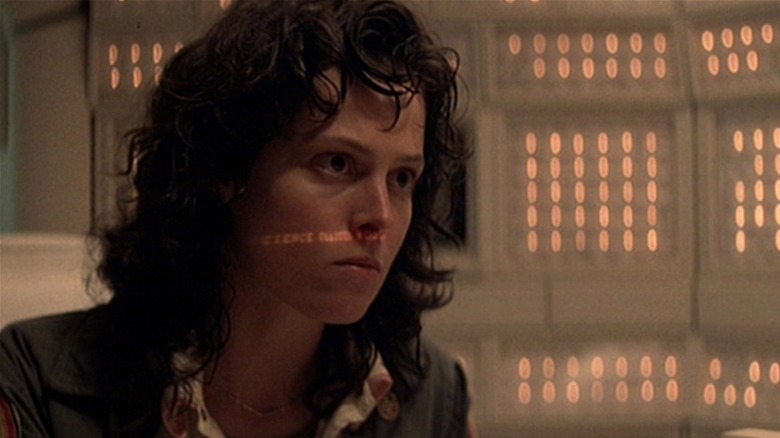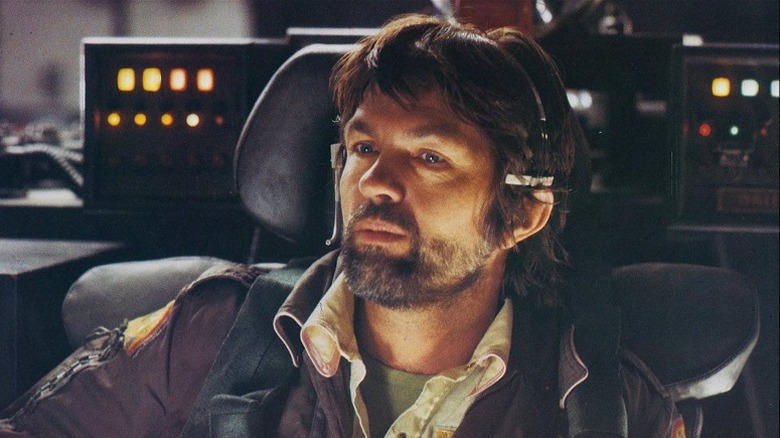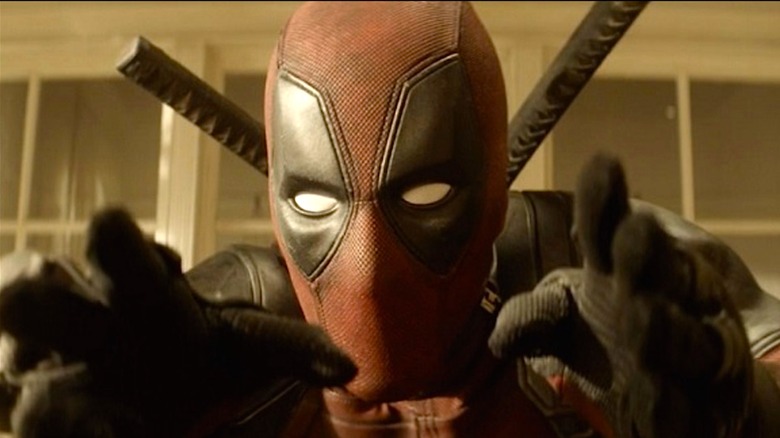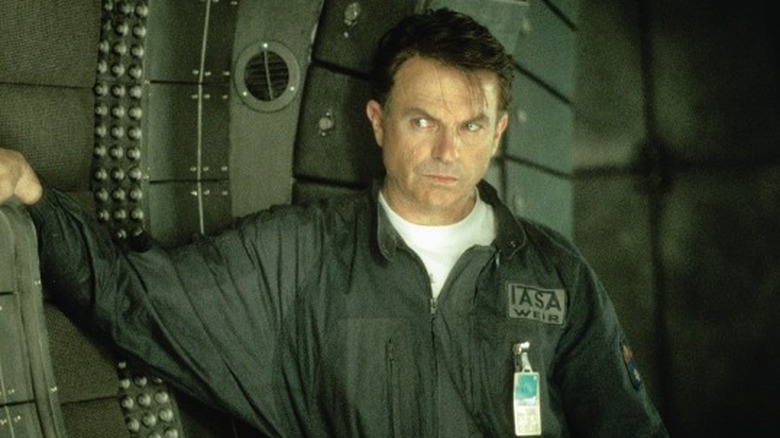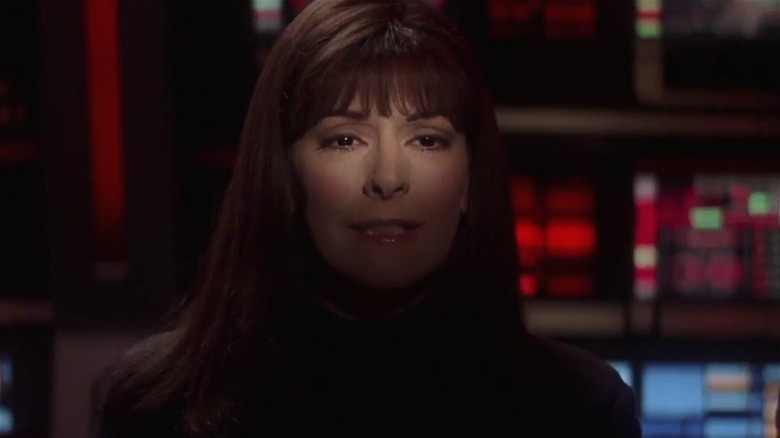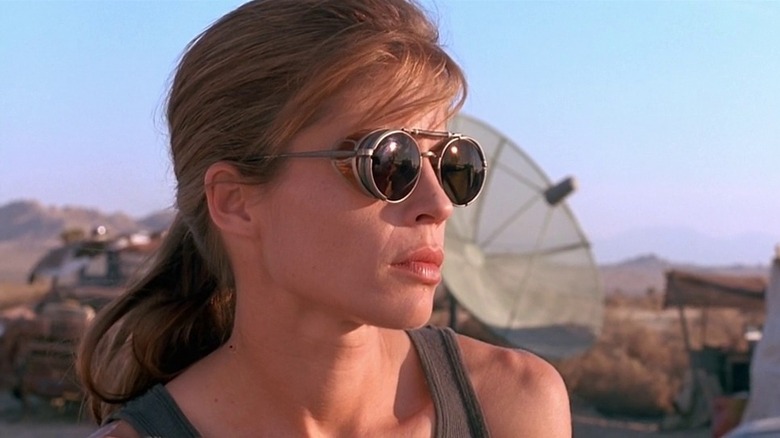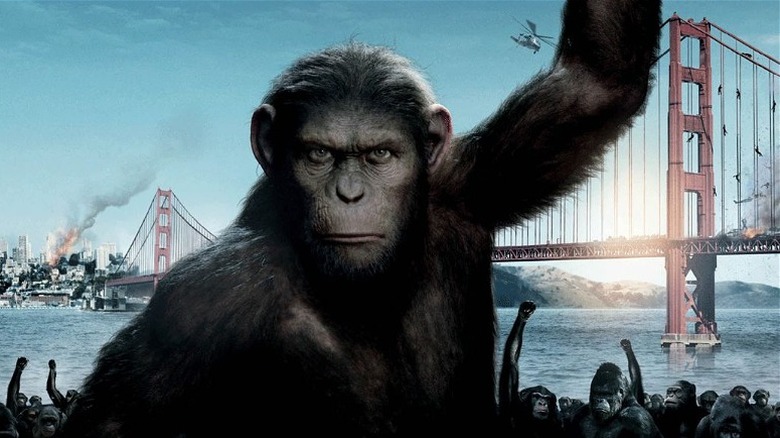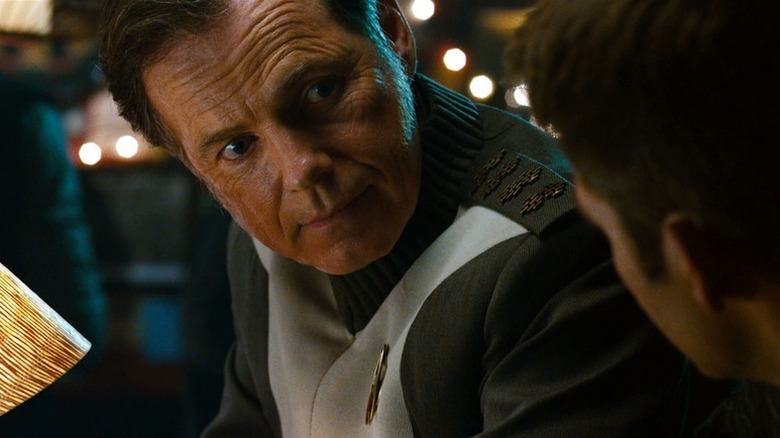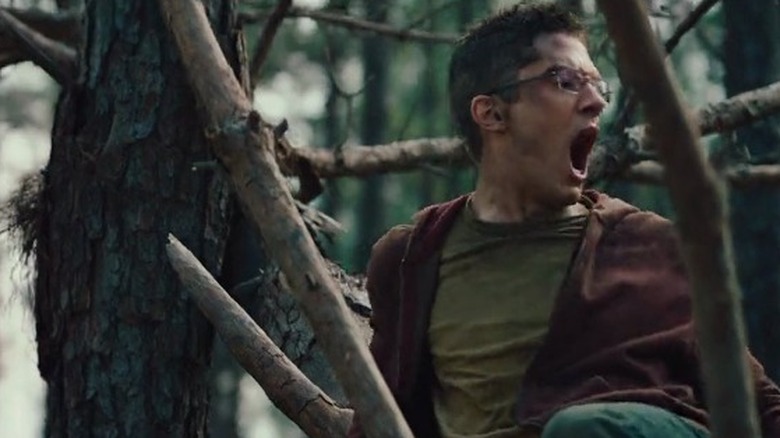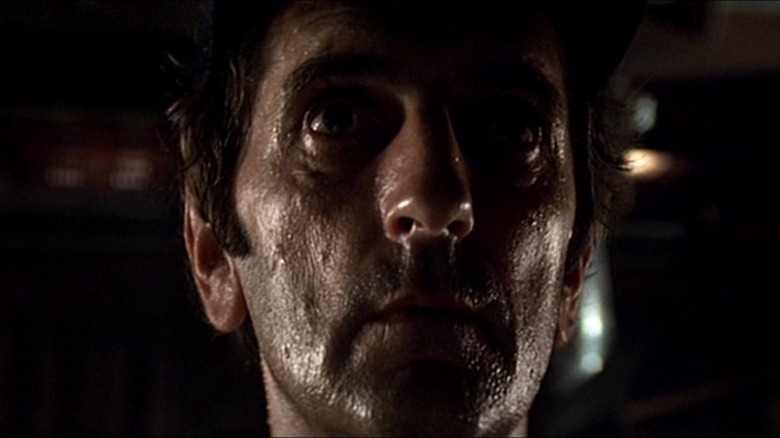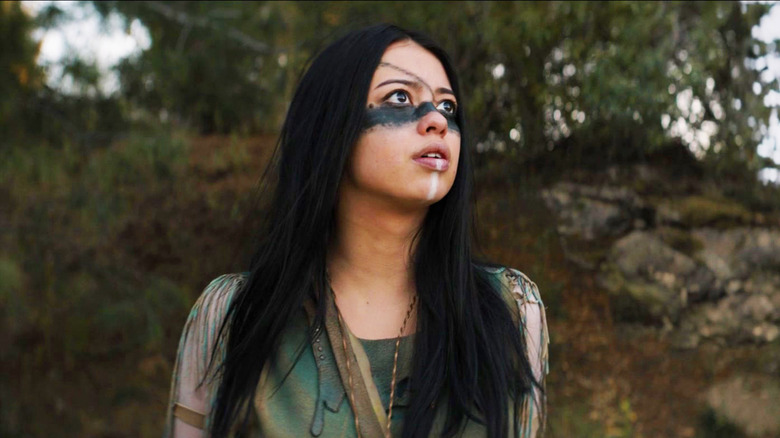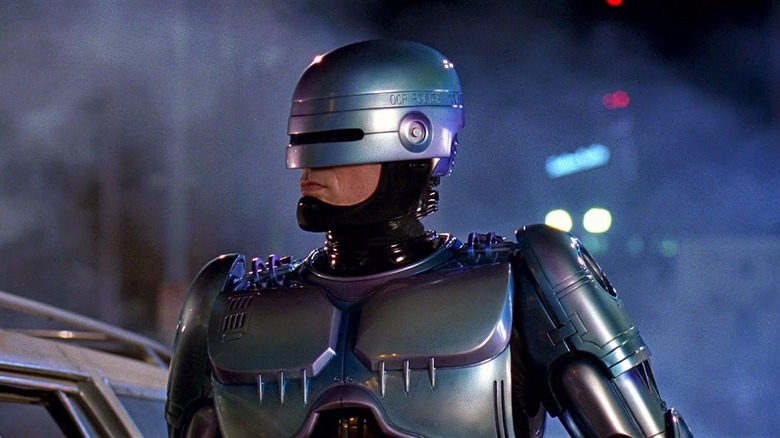Deleted Sci-Fi Scenes That Went Too Far
Science fiction allows storytellers to push past the expected limitations of the real world to create a more fantastical vision of the human condition. Of course, these leaps in logic and reason can sometimes prove too much and need to be reeled back in, so as to not lose an audience. For movie projects, these creative compromises come with the addition of making a story not only work for an audience but the studio producing and distributing the films. In short, not every planned scene makes it into a final film, even for something as otherworldly as sci-fi movies.
Deleted scenes always hit the cutting room floor for a reason, whether they slow down a movie's pacing too much or give away details about the story too early. In some cases, more graphic content gets trimmed to secure a rating desired by the studio ahead of a wide release. With that in mind, here are deleted scenes from iconic sci-fi movies that were omitted for going too far.
Alien reveals Dallas' grim end
The original "Alien" perfectly balances hard science fiction with outright horror. An early tour-de-force for director Ridley Scott, the movie depicts the futuristic spaceship the Nostromo stumbling across a remote planet before a monstrous creature infects one of the crew. Emerging and rapidly aging to adulthood is a fearsome extraterrestrial known as a xenomorph, poised to viciously kill everyone aboard the Nostromo. Among the first casualties of the xenomorph's rampage are the Nostromo's captain, Dallas (Tom Skerritt), and engineering technician Brett (Harry Dean Stanton).
In the theatrical cut of the 1979 film, the full extent of Dallas and Brett's final fates are left off-screen and to the viewer's imagination. A deleted scene incorporated into the "Alien" director's cut offers an alternate explanation as to what became of both men. As the lone survivor, Ripley (Sigourney Weaver), flees the Nostromo, she encounters Brett and Dallas, with Dallas in the midst of gruesomely transforming into an alien egg. With her crew mates already as good as dead, Ripley euthanizes them at a pained Dallas' urging. The scene was cut for throwing off the finale's tight pacing, giving greater urgency to Ripley's escape.
Deadpool 2 makes a questionable time-travel joke
2016's "Deadpool" ranks as one of the highlights in Fox's X-Men film series, and the 2018 sequel took its costumed mercenary in a harder science fiction direction. Deadpool (Ryan Reynolds) faces off against a hardened, time-traveling soldier named Cable (Josh Brolin) who seeks to kill the man destined to murder his family in the future. Cable targets a young mutant named Russell, with Deadpool and his team of misfit heroes scrambling to stop the assassination of a child. After saving Russell and still preventing armageddon, Deadpool uses Cable's time-travel device to save his girlfriend and indulge in some fourth wall-breaking hijinks at actor Ryan Reynolds' expense.
One gag in the time-travel sequence involves Deadpool visiting Adolf Hitler when the future tyrant is still just an infant in his native Austria. Contemplating saving millions of lives by assassinating Hitler, Deadpool points out to the audience that he's not the type to kill any babies. Deleted from the theatrical cut, the scene ends with Deadpool planning to introduce baby Hitler to Cable, knowing his new friend does not harbor the same moral qualms. For as low-brow as Deadpool can go, baby-killing jokes — even if the baby is Hitler — aren't the easiest sell, and its omission from the theatrical cut of "Deadpool 2" is not only understandable but perhaps saved the movie.
Event Horizon makes its gore too extreme
"Event Horizon," the most underrated project in director Paul W.S. Anderson's entire filmography, blends hard science fiction with supernatural horror. Released in 1997, the movie follows a spaceship accidentally opening a gateway to Hell, with a second ship investigating. Discovering the first ship massacred by the unleashed evil forces, the second vessel attempts to escape and avoid a similar fate. However, the hellish conditions are already affecting the latter ship's crew, leading to nightmarish visions and bloody betrayal.
The original cut of "Event Horizon" was much gorier and sexually graphic than the one that saw a wide theatrical release. One significantly trimmed sequence involved a video displaying a bloody orgy on the first ship after the dimensional rift affected it. After the studio was put off by the unpleasant content, the more explicit visuals were omitted from the final cut. Despite a fan campaign to produce an "Event Horizon" director's cut," the excised footage has since noticeably deteriorated in quality, dashing hopes for their reintegration.
Star Trek: Nemesis invades Troi's mind one last time
The 2002 film "Star Trek: Nemesis" introduces the Remans, a race subjugated by the Romulans and relegated to hard labor in their mines. Like Romulans, Remans possess telepathic abilities, which Shinzon (Tom Hardy) — Jean-Luc Picard's (Patrick Stewart) clone — uses to seize power over Romulus. After meeting the Enterprise crew, Shinzon develops an unhealthy obsession with Deanna Troi (Marina Sirtis) and menaces her with the help of his Reman Viceroy (Ron Perlman). This leads to Shinzon invading Troi's mind, starting with a moment when she's intimate with her husband Will Riker (Jonathan Frakes).
Shinzon's mental intrusions and harassment of Troi are the most uncomfortable moments in "Nemesis," with its frank depiction of sexual violence. An additional scene of Shinzon telepathically abusing Troi did not make the final cut. As Troi enters the turbolift, Shinzon invades her mind again, leaving her crying in pain at the violation. With these existing interactions between Troi and Shinzon already highly unsettling, the removal of a superfluous one is certainly appreciated.
Terminator 2: Judgment Day takes away its sole refuge
As far as blockbuster action sci-fi goes, "Terminator 2: Judgment Day" is a masterwork of the genre and the pinnacle of the franchise. The 1991 movie has sentient machines from the 21st century send T-1000 (Robert Patrick), a killer android composed of shape-shifting liquid metal, back in time to assassinate future human resistance leader John Connor (Edward Furlong). Anticipating this, the future John sends T-800 (Arnold Schwarzenegger), a slightly outdated Terminator back to the '90s, programmed to defend his younger self and his mother Sarah (Linda Hamilton). Successfully escaping Los Angeles, the Connors and T-800 temporarily hide out at a camp in the desert before deciding to stop the machine apocalypse from occurring.
The sequence was originally planned to be extended and set at a ranch, revealing Sarah's history with its overseer Gant, before the T-1000 wiped out its inhabitants while continuing its hunt. Only existing in early scripts and storyboards, the T-1000 tortures Gant for information about the Connors' whereabouts before finishing him off. The T-1000's visit to Gant Ranch got the axe because the filmmakers felt it made the film tonally darker and more violent than they intended, as well as slowed the pace. Instead, they shifted the scene to the camp, with the dialogue streamlined and the character of Gant and T-1000's subsequent appearance dropped altogether.
Rise of the Planet of the Apes makes Caesar less sympathetic
2011's "Rise of the Planet of the Apes" effectively reboots the popular "Planet of the Apes" franchise, complete with a new origin for humanity being replaced by super-smart simians. The movie chronicles a deadly contagion decimating the human race as apes used for Alzheimer's medication testing have their intelligence significantly boosted. The medication is developed by the pharmaceutical giant Gen-Sys, with experiments overseen by immoral executive Steven Jacobs (David Oyelowo). Jacobs approves the widespread mistreatment of the captive apes and oversees the climactic battle with the escaped apes on the Golden Gate Bridge from a helicopter.
In the theatrical version of "Rise of the Planet of the Apes," the gorilla Buck (Richard Ridings) sacrifices himself to destroy the helicopter and protect Caesar (Andy Serkis), the revolutionary chimpanzee leading the apes. A deleted scene puts Jacobs' death in a darker light and one that makes Caesar considerably less heroic. The deleted scene starts after Buck's sacrifice and depicts the helicopter hanging precariously on the edge of the Golden Age Bridge, with Jacobs still alive. As Jacobs pleads for mercy, a stone-faced Caesar pushes the helicopter off the bridge, sending Jacobs plummeting to his doom. The scene made Caesar a decidedly unsympathetic figure and thus was excised from the final cut.
Star Trek Into Darkness gives Pike's death a different perspective
"Star Trek Into Darkness" is the 2013 sequel to filmmaker J.J. Abrams' 2009 cinematic reboot of the "Star Trek" franchise. The movie remixes the Enterprise's harrowing showdown with Khan Noonien Singh from the seminal 1982 film "Star Trek II: The Wrath of Khan." After going rogue, Khan (Benedict Cumberbatch) attacks a meeting of Starfleet captains, killing the Enterprise's captain and James T. Kirk's (Chris Pine) mentor Christopher Pike (Bruce Greenwood) before fleeing. In the theatrical version, Spock (Zachary Quinto) witnesses Pike getting mortally wounded while Kirk focuses, in vain, on bringing Khan to justice.
A deleted scene has Kirk watch Pike get shot by Khan as the genetically enhanced villain blasts Starfleet headquarters with a small gunship. After test screenings, it was decided to have Kirk come upon Pike and Spock after Khan had retreated, with Pike already dead. The filmmakers felt that this change gave Pike's death more emotional weight, particularly for Kirk, instead of launching him directly into a big action scene. There is still no word as to why this scene was removed while the scene giving Khan's blood magical healing properties remained.
Predators spoils its big twist
The 2010 film "Predators" takes the premise from earlier "Predator" movies and effectively inverts it. Instead of extraterrestrial hunters coming to Earth to hunt humans for sport, "Predators" brings a group of humans to hunt on a remote hunting planet. To ensure a more challenging experience for the hunters, the humans selected are each noted killers back on Earth. Amidst all the displaced soldiers and criminals is Edwin (Topher Grace), a seemingly unassuming physician roped into the hunt.
By the end of the film, Edwin is revealed to be a secret serial killer back home, but an understandably deleted scene initially spoiled the twist far earlier in the movie. The scene sees the humans' de facto leader Royce (Adrien Brody) privately confront Edwin while the latter relieves himself, demanding to know why he's here. Edwin admits that during a drug-fueled bender while on the job he accidentally killed one of his patients. Though this scene doesn't give Edwin's full nature away, the twist of his murderous side is better preserved by removing the confrontation entirely.
Alien changes up its character deaths
Much of the original plans for "Alien" ultimately was left on the cutting room floor or unfilmed. Among these omitted scenes are the death of both Brett (Harry Dean Stanton) and the Nostromo's navigator, Lambert (Veronica Cartwright). After the xenomorph grows to adulthood, it first kills Brett after he investigates what's bothering the ship's cat, Jones. Lambert is abruptly ambushed by the creature while trying to evacuate the Nostromo, murdered as she gathers supplies.
Both characters' death scenes were trimmed in the theatrical cut to provide more variety for the audience and heighten the xenomorph's mysteriousness. Brett initially had his head crushed and heart ripped out by the xenomorph, rather than disappearing completely after his demise. Feeling this showed too much of the xenomorph and closely resembled Kane's (John Hurt) death earlier in the film, the scene was heavily cut down. Similarly, Lambert originally saw the xenomorph approach her while she was paralyzed with fear, with the scene cut for showing too much of the creature.
Prey cuts a treetop chase
After years of middling sequels and attempts at a full revival, the "Predator" franchise got a much-needed boost with 2022's "Prey." Set in 18th-century America, the movie follows a Comanche tribe that finds themselves squaring off with a Predator using Earth as its hunting ground. A young woman named Naru (Amber Midthunder), while trained as a healer, hopes to become a hunter like her older brother. With her natural talents and knowledge of the terrain, Naru is her tribe's best hope in surviving against this extraterrestrial menace.
A planned scene called for Naru to navigate treetops and discover the Predator's advanced weaponry as she retreats to safety. Filmmaker Dan Trachtenberg chose to remove the scene as he felt it hewed too closely to a Tarzan-esque sequence that would differ tonally from the rest of the movie. Other major factors for the scene's deletion included mounting costs and the time commitment needed to stage such an elaborate sequence. All that remains of the scene is a pre-visualization of it during the planning stages, available with the physical media release of "Prey."
RoboCop 2 veers into the surreal
"RoboCop 2" is a strange sequel, heightening its commentary on corporate malfeasance while depicting a protagonist suffering from malfunctioning programming. Throughout the 1990 film, the titular police officer (Peter Weller) experiences flashbacks to his old life before he was resurrected through advanced cybernetics. RoboCop insists that the man he once was, Alex Murphy, is long gone, leaning more into his identity as a machine than a man. After an emergency reboot, RoboCop stands whole, just in time to save Detroit from the villainous Cain.
The most surreal moment of RoboCop's existential crisis was ultimately cut from the final film. After meeting Murphy's widow and claiming the man she married is dead, RoboCop dreams of visiting his own grave. This extended sequence doesn't sync with the rest of the action-driven sequel, as it seemed overly stylized and tonally turgid in comparison to the rest of the movie. This psychedelic detour was wisely excised, leaving RoboCop's struggles with his lost humanity to the easier-to-comprehend flashbacks in the theatrical cut.
